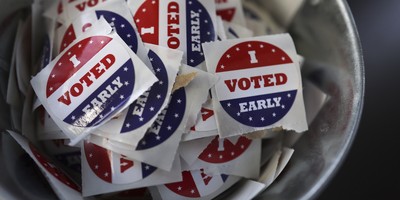What happens when politicians and pundits succumb to the notion that it is all right to micromanage our daily lives?
Well, for one thing, Daylight Savings Time. I bring this up because I am struggling to stay awake because I lost an hour of sleep to this abominable government regulation.
Daylight Savings Time is now and always has been a bad idea—the product of do-gooders who believe that they can tweak things from Washington to make the world a better place.
They tweak, we submit meekly.
Daylight Savings Time was invented by William Willet in 1905 because he was annoyed that his fellow Londoners slept through what he considered the best part of the day—the early morning. The solution proposed by this busybody was to use the power of government to force everyone to wake up when he thought they should.
The idea didn’t catch on until the advent of World War I, when other busybodies in government latched onto the idea that DST would help save energy, which was then at a premium due to the war. Like many bad ideas, nobody actually did the math to find out whether the underlying premise was correct, and modern DST was born.
It wasn’t until 1918 that the United States joined the bandwagon (soon after we joined the war), and due to the salutary pigheadedness of at least a few Americans it was not universally adopted. Unfortunately, Arizona and Hawaii are the only holdout states left.
Today’s version of Daylight Savings Time—which perversely lasts about twice as long as “standard” time—is still motivated by the supposed need to save energy. Our wise Congress decreed in the Energy Security Act of 2005 a modification that extended DST by another month in order to save energy and reduce greenhouse gases.
Recommended
The do-gooders are wrong, of course. It is not so easy to tweak the real world in order to get the results you want.
Consider these facts:
Daylight savings time likely increases energy use, despite the fact that Americans use somewhat less lighting than without it. It turns out that heating and air conditioning usage goes up; · Billions of dollars were spent by individuals and companies change the DST rules in computer programs when Congress decided to tweak the rules, creating a mini-Y2K problem;
· Americans spend, conservatively, about $1.7 billion in time wasted changing their clocks and watches to reflect the springing forward and falling back each year;
· DST causes deaths, as more pedestrians are hit in the fall after the return to standard time, and more car accidents happen due to tired drivers in the spring.
The point is not that we should abandon DST because it is bad policy (we should and it is), but that we should abandon the notion that bureaucrats and politicians can tweak policies to make a better world.
The law of unintended consequences makes it unlikely that the good anticipated will come about, and ensure that all sorts of bad things not anticipated will come to pass.
The world is imperfect, as are we. But with few exceptions it is better to let people muddle about in relative freedom than to try to socially engineer them into some preconceived and probably impossible better world.
Ironically enough, that was the point of the Benjamin Franklin’s satirical essay that has led many to believe that he, not William Willet was the inventor of DST. What Franklin thought absurd and amusing, forcing Parisians through government fiat to abandon their love of nighttime activities, has now become the official public policy of much of the world.
Ah, progress!

























Join the conversation as a VIP Member